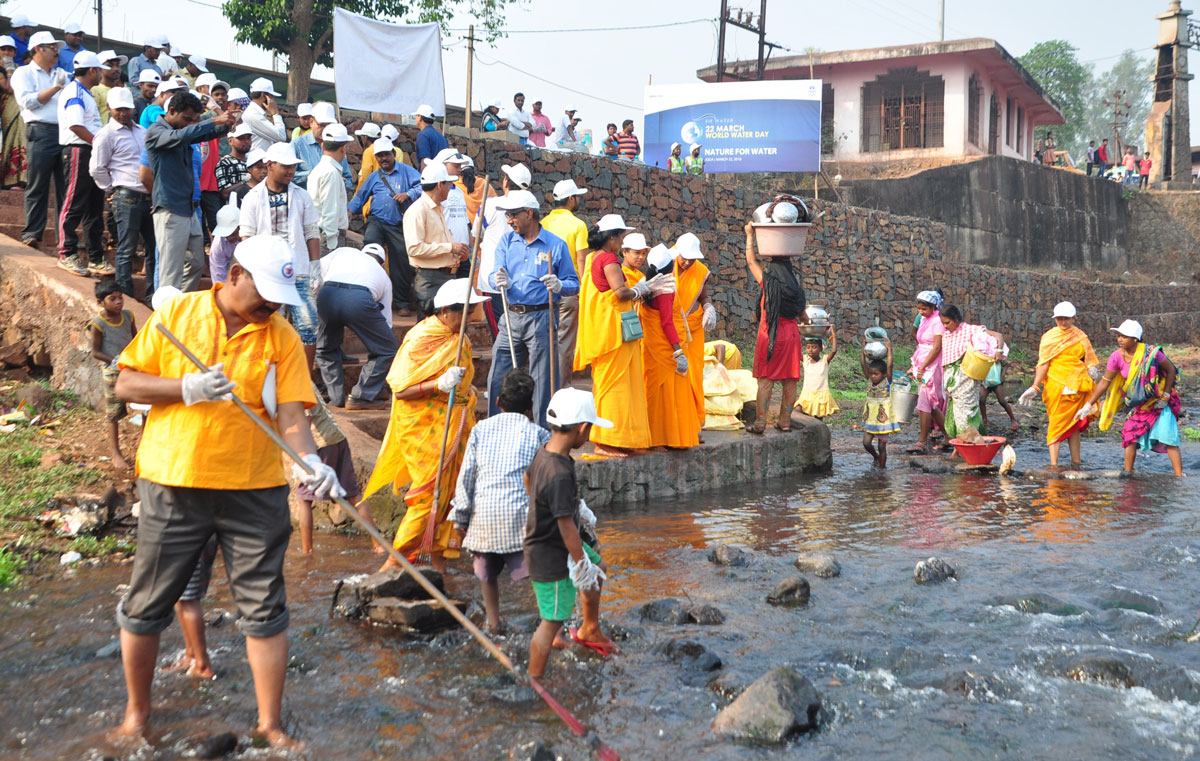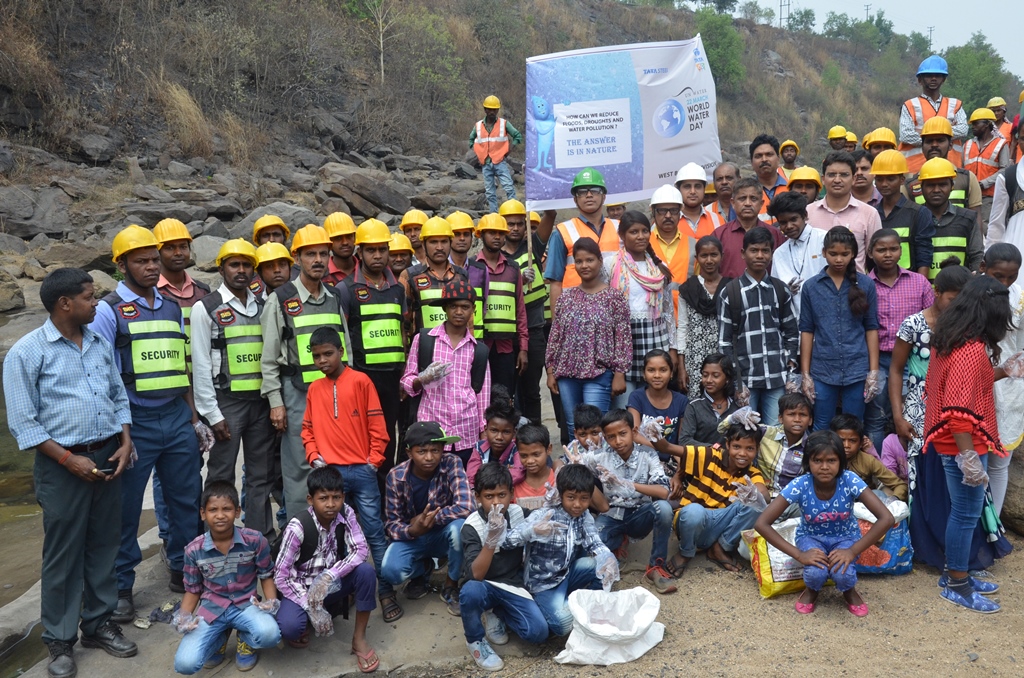Raw Materials Division of Tata Steel celebrates World Water Day

Tata Steel’s OMQ (Ore, Mines & Quarries) Division and West Bokaro Division celebrated ‘World Water Day 2018’ with theme of the year "Nature for Water" on March 22, 2018. On this occasion, a river cleaning drive was organised at Sona river of Joda followed by expert sessions on Water Conservation at Valley Club, Joda. The objective behind these programmes was to remind people about not wasting one of the most important elements that sustains life on the planet.
All sections of the society participated in the Sona river cleaning drive, which is considered as the lifeline of Joda. Gayatri Parivar, Joda actively participated in this drive along with school students of Tata DAV Public School, councillors of Joda Municipality and employees of Tata Steel. Over 300 people from Joda voluntarily participated in this drive and pledged to contribute in terms spreading the message of clean Sona river.

An expert session on conservation and management of water was convened at Joda Valley Club. Ms Kavita Pati and Mr Veerabaswant Reddy from The Energy and Resources Institute, Mr K R Gopinath, Chairman, KRG Rain Water Foundation and Mr Sajid Idris from INTACH delivered technical sessions on water management. Students of Tata DAV Public School spread the message of water conservation through skits and other cultural performances post the expert sessions.
Similarly, around 200 people including employees of Tata Steel and Tata Steel Rural Development Society (TSRDS), security personnel, students, vendor partners and residents of West Bokaro came together to clean Bokaro river near Rajiv Nagar, West Bokaro. Bokaro river is the lifeline of West Bokaro as many lives are dependent on this source of water. An interactive session was also organized at Pannatand by TSRDS. The session attended by more than 50 farmers of Pannatand and nearby villages aimed at creating awareness regarding conservation of water during rainy season and means to stop water wastage during farming.
Tata Steel has taken many initiatives for conservation and management of water at its raw material locations like rain water harvesting project to recharge ground water and Sewage Treatment Plants to recycle and reuse of sewage water and adopted best method to recycle mining process water.
About Tata Steel
Tata Steel Group is among the top global steel companies with an annual crude steel capacity of 27.5 million tonnes per annum (MTPA) as on March 31, 2017. It is the world's second-most geographically-diversified steel producer, with operations in 26 countries and a commercial presence in over 50 countries. The Group recorded a consolidated turnover of US $18.12 billion (INR 117,420 crore) in FY17. Tata Steel Group is spread across five continents with an employee base of nearly 70,000. Having bagged the Deming Application Prize and Deming Grand Prize for continuous improvement in 2008 and 2012 respectively, Tata Steel has now been recognised as the global ‘Industry Leader’ in ‘Steel category’ by Dow Jones Sustainability Index (2015). Besides being a member of the World Steel Climate Action Programme, Tata Steel has also been felicitated with several awards including the Prime Minister’s Trophy for the best performing integrated steel plant for 2013-14 (received in 2017), Best Risk Management by CNBC TV18 (2016), ‘Best-in-class Manufacturing’ award from TIME India (2016) and the ‘Most Ethical Company’ award from the Ethisphere Institute (2016), IIM Sustainability Award (2015), among several others.
Disclaimer
Statements in this press release describing the Company’s performance may be “forward looking statements” within the meaning of applicable securities laws and regulations. Actual results may differ materially from those directly or indirectly expressed, inferred or implied. Important factors that could make a difference to the Company’s operations include, among others, economic conditions affecting demand/ supply and price conditions in the domestic and overseas markets in which the Company operates, changes in or due to the environment, Government regulations, laws, statutes, judicial pronouncements and/ or other incidental factors.<









